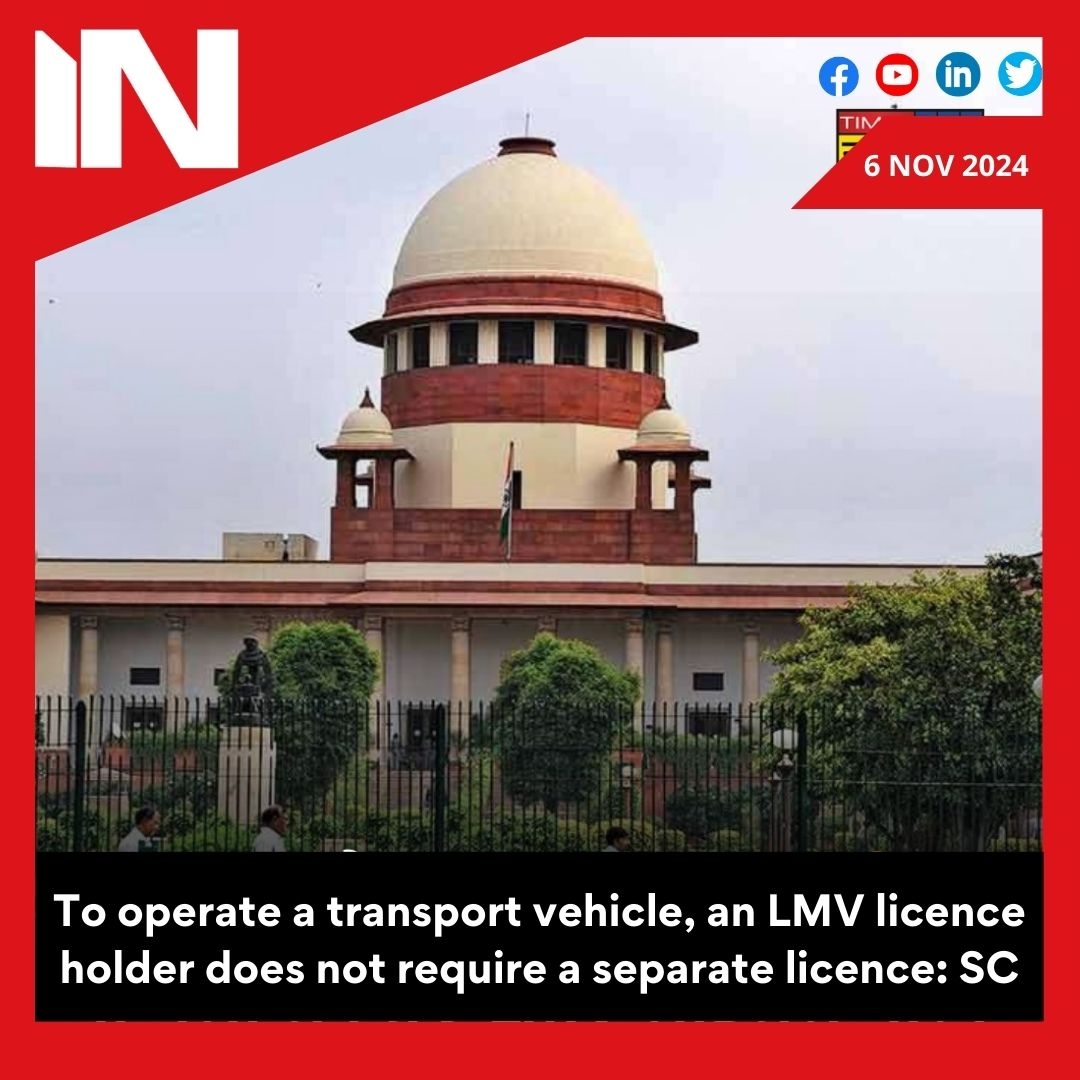The judgement is a jolt to insurance companies which had been rejecting claims if accidents involved transport vehicles of a particular weight and if the drivers were not authorised to drive them
The Supreme Court on Wednesday held that a person holding a driving licence for a light motor vehicle (LMV) will now be able to drive a transport vehicle weighing less than 7,500 kg.
The decision by a five-judge Constitution bench headed by Chief Justice of India (CJI) Dhananjaya Y Chandrachud came on a clutch of petitions filed by insurance companies challenging a 2017 decision by a three-judge bench which made it possible for LMV license holders to drive transport vehicles.
The insurance firms claimed that the decision required to be reversed as it would allow a person with LMV license to drive a bus, truck or a road roller, jeopardising the lives of citizens and increasing the burden on insurance companies to pay compensation.
The bench, also comprising justices Hrishikesh Roy, PS Narasimha, Pankaj Mithal, and Manoj Misra said, “Road safety is a serious public issue” as it noted that in 2023 alone, road accidents claimed over 1.7 million lives.
“Parties have not brought any empirical data that LMV license holder driving transport vehicles were causing accidents”, the bench said.
Also Read:Chandigarh: Insurance firms ask SC to reverse 2017 ruling on LMV licences for transport vehicles
Acting on the appeals by upholding its 2017 decision in Mukund Dewangan case, the court said that for licensing purpose, LMV and transport vehicles are not separate categories.
It added that the additional training and eligibility criteria specified under Motor Vehicles Act (MV Act) will apply to persons who wish to drive transport vehicles exceeding 7,500 kg. These will include medium goods and passenger vehicles and heavy goods and passenger vehicles.
The top court considered the issue of livelihoods as it said that the 2017 decision allowed a driver of a common man to even drive a transport vehicle. As this involved the livelihood of these drivers, the court had, during the proceedings, asked the Centre to consider a way out by bringing amendments to the law.
Attorney General R Venkataramani had informed the court that the amendments are yet to be finalised as the same is pending with the ministry of road transport and highways (MoRTH) piloting the amendments.
The bench did not comment anything on the said process as the AG had assured the court that the amendments will be notified in due course.
“We hope the comprehensive amendments will address the issue”, the bench said.
The insurance companies submitted that the 2017 decision had serious implications for road safety as it would permit an auto rickshaw driver to drive a road roller, transport vehicle drivers, for whom a rigorous 30-day training course is mandated before acquiring a license.
The bench also heard arguments from individuals who benefited by the 2017 decision as it was pointed out that private vehicles falling in the category of LMV are increasingly being used as cabs and taxis.
The Supreme Court of India has ruled that holders of a Light Motor Vehicle (LMV) license do not require a separate license to drive transport vehicles. This landmark judgment clarifies that an LMV license is sufficient for operating transport.
vehicles like trucks and buses, provided the driver adheres to safety regulations. The ruling is expected to ease legal complexities for drivers in the transport sector.
#SupremeCourt #LMVLicense #TransportVehicles #LegalRuling #SupremeCourt #LMVLicense #TransportVehicles #LegalRuling #SupremeCourt #LMVLicense #TransportVehicles
Group Media Publications
Entertainment News Platforms – anyflix.in
Construction Infrastructure and Mining News Platform – https://cimreviews.com/
General News Platform – https://ihtlive.com/

